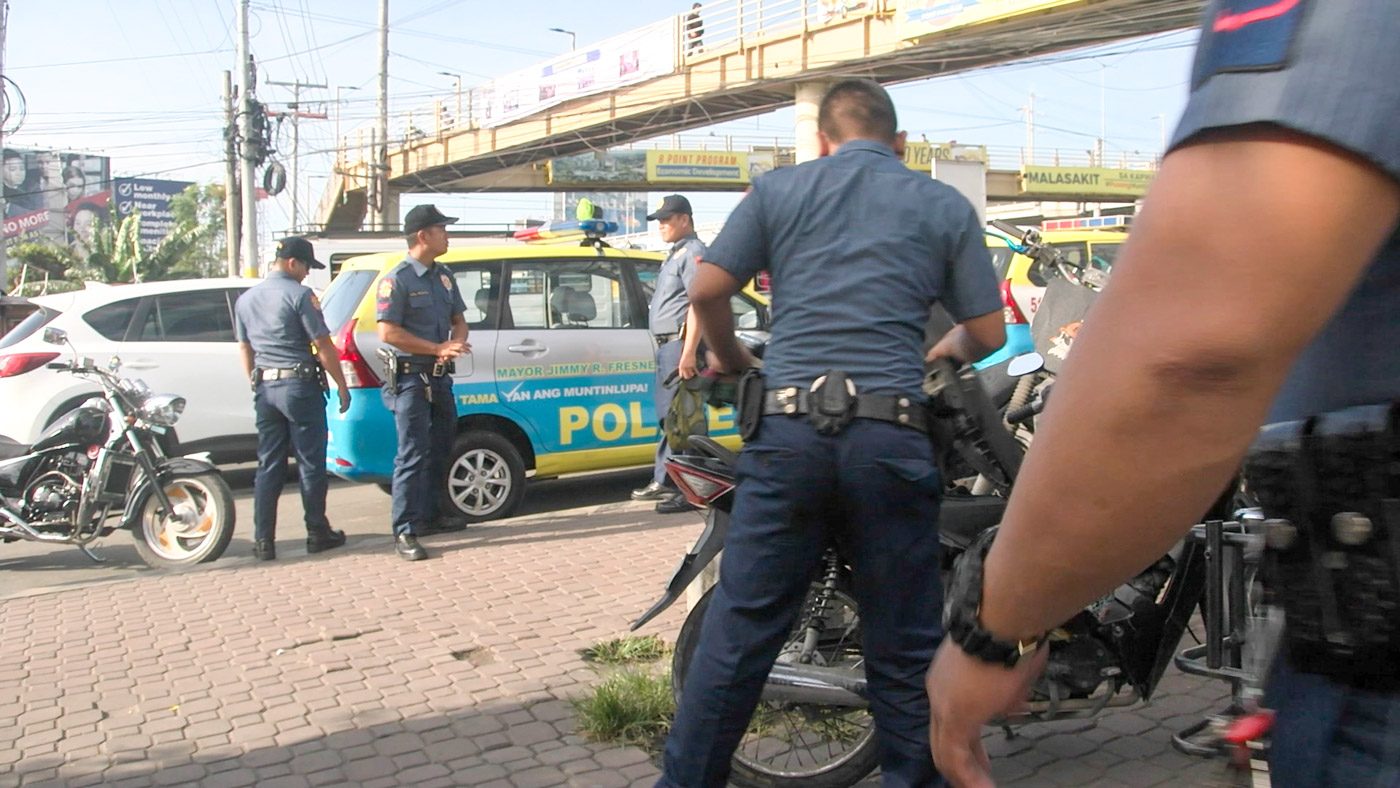SUMMARY
This is AI generated summarization, which may have errors. For context, always refer to the full article.

MANILA, Philippines (UPDATED) – The circulars that operationalized President Rodrigo Duterte’s drug war violate the rights of suspects guaranteed in the Constitution, according to a research paper presented by the Ateneo Human Rights Center (AHRC) on Friday, April 26.
AHRC Director Ray Paolo Santiago said the research paper examined the legal framework of Oplan Tokhang, and concluded that the operation, on paper, has a kind of vagueness that “affords state agents the latitude if not discretion that render our human rights vulnerable.”
The paper outlines all rights that are violated by the policies, such as right to privacy, information, due process, presumption of innocence and rights against illegal search, and self-incrimination – all guaranteed by the Constitution.
“The implementation of the current anti-drug policies, now with the benefit of hindsight, reveals a pattern of human rights violations that must be addressed,” said lawyer Araceli Habaradas, one of the research proponents.
The first circular, PNP CMC No. 16-2016 as signed by then-top cop General Ronald dela Rosa in July 2016, is for “the conduct of house-to-house visitations to persuade suspected illegal drug personalities to stop their illegal drug activities.”
“The PNP Double Barrel Circular can serve as the license for police personnel to do acts that expose Tokhang subjects to many evils sought to be prevented by the Bill of Rights because of the vagueness and lack of accompanying guidelines,” the research paper said.
The most glaring issue is whether Tokhang constitutes custodial investigation, defined as the questioning of someone taken into custody or someone deprived of his freedom.
While custodial investigation is allowed, it comes with rights such as the reading of Miranda rights. (READ: If you’re arrested or detained, know these rights)
The AHRC paper said Tokhang constitutes custodial investigation, but does not afford the rights.
“Despite not being in custody, Tokhang subjects were persuaded in assorted ways that flirt with dangers sought to be prevented by constitutionally guaranteed rights of those under custodial investigation, including the right to counsel,” it said.
PNP Circular from 2016 is being questioned before the Supreme Court by petitions seeking to declare the drug war unconstitutional. During oral arguments, SC Associate Justice Francis Jardeleza said the issue of custodial investigation is already enough basis to stop the drug war at that point. The en banc didn’t do so.
“That is a violation of the definition of custodial investigation, if the police cannot invite you to the police station, the police cannot under the same circumstances invite themselves into your home,” Jardeleza had said.
Refusing to categorically comment on the constitutionality of the circulars, owing to a pending Supreme Court case, Santiago said: “The documents plus the implementation, the combination shows, that it is actually violative of constitutionally guaranteed rights.”
The Ateneo Human Rights Center presents its research on the legal framework of Rodrigo Duterte’s anti-drug campaign @rapplerdotcom pic.twitter.com/i7yKoEKKx0
Voluntary surrender
The researchers said the feature of a voluntary surrender in the PNP circular, as well as succeeding circulars both of the police and the Dangerous Drugs Board (DDB), is what makes Duterte’s drug war even more dangerous.
Voluntary submission in existing laws can exempt a drug suspect from criminal liability. In Duterte’s war on drugs, a surrenderer may further expose himself to prosecution. (READ: Duterte gov’t allows ‘drug war’ deaths to go unsolved)
Under the Dangerous Drugs Act, if a person “voluntarily submits” to the rehabilitation program, he or she can be exempt from criminal liability. It’s consistent with the definition of submission under the Revised Penal Code (RPC).
Under DDB’s 2016 Reg. 4 Circular, however, the surrenderer is asked to execute an affidavit “and waiver which contains multiple admissions of guilt.”
“Second, the rest of the regulation’s text suggests that the execution of a voluntary confession is mandatory being an integral part of the surrender protocol. Both affidavit and voluntary confession may even be used as evidence against a surrenderer in the event charges are filed against him/her in the future,” said the AHRC paper.
It also noted that surrenderers not only have to execute an undertaking, Oplan Tokhang makes subjects sign a waiver that allows state agents to take a urine sample and use the test results “for any legal purpose it may serve.”
“These in effect translate to, whether intentionally or unintentionally, a waiver of the surrenderers’ right against an unreasonable search and right to privacy,” said the paper.
“Nearing 3 years since Tokhang’s birth, we ask, how does the anti-illegal drug campaign legal framework affect the human rights of everybody? A general mention of the phrase with due observance of human rights in various issuances is mere lip service without details of implementation,” said Habaradas. – Rappler.com
Add a comment
How does this make you feel?
There are no comments yet. Add your comment to start the conversation.